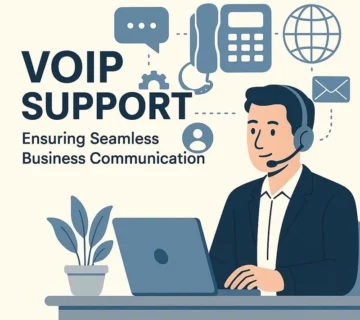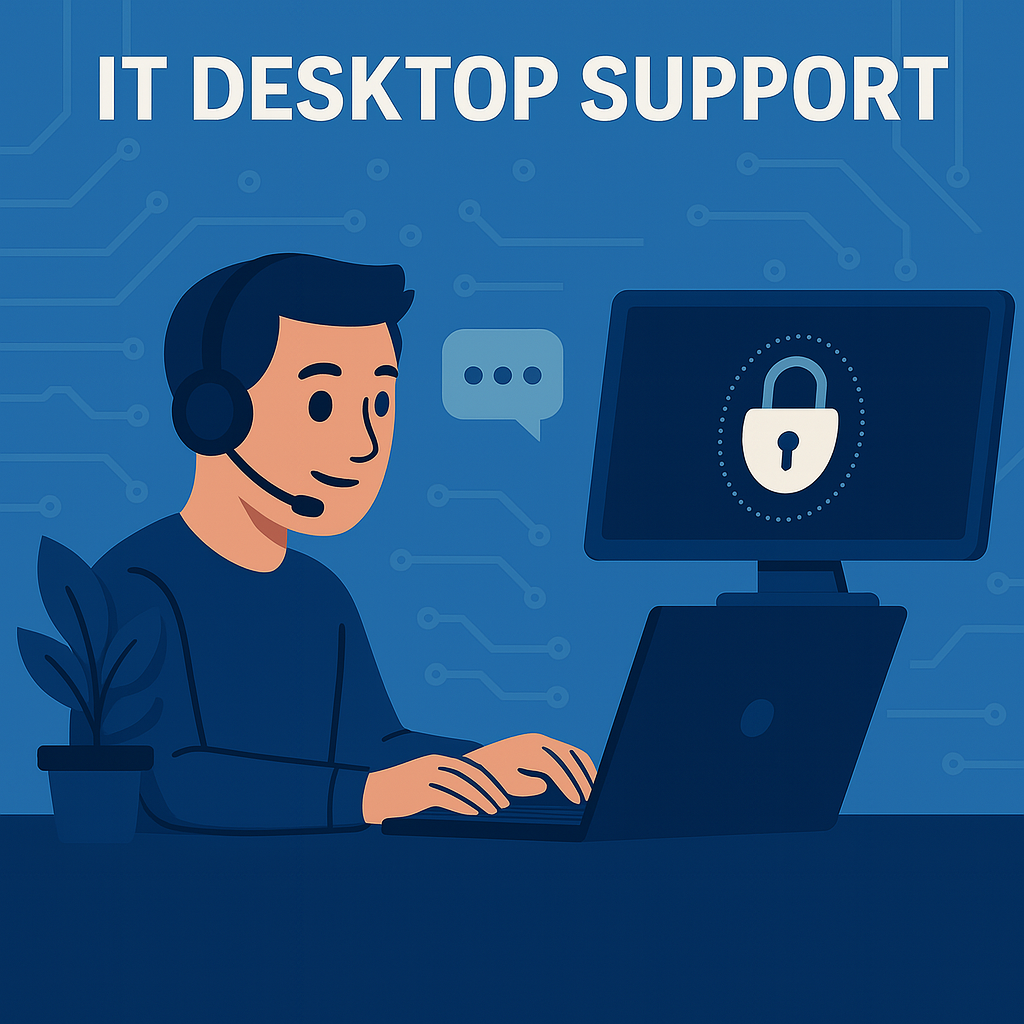Exploring the Latest Trends in VoIP Systems: A Guide for 2025

Voice over Internet Protocol (VoIP) technology continues to transform global communication systems. Its cost-effectiveness, flexibility, and rich features have made it indispensable for businesses and personal use alike. As we move into 2025, VoIP is evolving with innovative trends that promise to reshape communication technologies even further.
This article delves into the latest trends, challenges, and opportunities in VoIP, offering insights into how businesses can leverage this technology and how Ecasys can help implement tailored VoIP solutions.
What is VoIP, and Why Does It Matter?
VoIP transmits voice and multimedia content over Internet Protocol (IP) networks instead of traditional circuit-switched telephone networks. By converting analog voice signals into digital data packets, VoIP enables faster, more versatile, and affordable communication.
The Evolution of VoIP Technology
Initially developed in the 1990s as a cost-effective alternative to traditional telephony, VoIP faced challenges such as poor call quality and unreliable connections. Advances in broadband technology, compression algorithms, and network infrastructure have since resolved these issues, enabling VoIP to dominate modern communication systems.
Top Trends in VoIP Systems for 2025
VoIP technology continues to evolve, driven by advancements in AI, 5G, and cloud computing. Here are the key trends shaping the industry in 2025:
1. Artificial Intelligence (AI) Integration
AI is becoming integral to VoIP systems, offering powerful tools to enhance communication and optimize operations.
- AI-Driven Analytics: AI tools provide real-time analysis of call data, helping businesses understand customer behavior and service performance.
- Smart Virtual Assistants: AI-powered assistants automate routine inquiries, enhancing customer experiences and freeing up resources.
- Proactive System Maintenance: Predictive AI algorithms identify potential issues, ensuring proactive repairs and reducing downtime.
2. Enhanced Capabilities with 5G Networks
The global rollout of 5G is set to take VoIP systems to the next level in 2025.
- High-Quality Communications: Lower latency and higher bandwidth provide crystal-clear voice and video calls.
- IoT Integration: 5G enables VoIP to seamlessly connect with IoT devices, facilitating smarter and more efficient ecosystems.
- Mobile VoIP Advancements: 5G-powered mobile apps offer seamless HD video and voice calling, enhancing mobility.
3. Unified Communications as a Service (UCaaS)
UCaaS continues to gain popularity as businesses seek integrated solutions to support hybrid and remote work models.
- Integrated Platforms: UCaaS consolidates voice, video, messaging, and collaboration tools into a single cloud-based platform.
- Increased Adoption: Organizations of all sizes are leveraging UCaaS to streamline communication and reduce operational costs.
- Advanced Features: The inclusion of AI, analytics, and enhanced security features makes UCaaS a comprehensive solution.
4. Focus on Cybersecurity in VoIP
As VoIP adoption grows, so does the need for enhanced security.
- End-to-End Encryption: Protects data from interception during transmission.
- Multi-Factor Authentication (MFA): Adds an additional layer of protection against unauthorized access.
- Compliance with Evolving Regulations: Ensuring adherence to data privacy laws, such as GDPR and emerging regional policies.
5. Increased Adoption by Small and Medium Enterprises (SMEs)
VoIP is an ideal choice for SMEs due to its scalability and affordability.
- Cost Savings: VoIP eliminates the need for expensive hardware and reduces call rates.
- Flexible Solutions: Businesses can easily add or remove users as needed.
- Real-World Success Stories: SMEs leveraging VoIP have reported improved customer satisfaction and streamlined operations.
Challenges in VoIP Implementation
Although VoIP offers numerous benefits, certain challenges remain:
1. Dependence on Reliable Internet
VoIP requires a stable internet connection, making it susceptible to outages and network congestion. High-speed broadband and failover systems are essential to maintain service quality.
2. Quality of Service (QoS) Management
Achieving consistent call quality during peak usage periods requires robust network infrastructure and proper bandwidth allocation.
3. Navigating Regulatory Requirements
With varying global regulations, ensuring compliance is a critical aspect of VoIP implementation. Organizations must stay updated on regional laws to avoid legal complications.
Future Outlook for VoIP Systems
The VoIP industry shows no signs of slowing down, with numerous exciting developments on the horizon:
Emerging Technologies
Blockchain technology is expected to bolster security, while machine learning will enhance system intelligence, offering smarter analytics and automation.
Market Expansion
The global VoIP market is projected to grow significantly, fueled by the increasing demand for flexible and remote communication solutions.
2030 Predictions
By 2030, VoIP is anticipated to become the universal standard for communication, making traditional telephony obsolete.
How Ecasys Can Help Businesses Adopt VoIP
Ecasys is at the forefront of VoIP solutions, offering end-to-end services tailored to meet your business needs.
Customized Solutions
Ecasys designs VoIP systems that integrate seamlessly with your existing infrastructure, ensuring a smooth transition without disrupting operations.
Comprehensive Integration
Whether it’s CRM tools, collaboration platforms, or analytics software, Ecasys ensures your VoIP system works in harmony with your business applications.
Ongoing Support and Maintenance
With 24/7 technical support and regular system updates, Ecasys guarantees uninterrupted and reliable communication for your organization.
Frequently Asked Questions (FAQs)
1. What is VoIP, and how does it work?
VoIP transmits voice and multimedia over IP networks by converting analog signals into digital packets.
2. Why is VoIP better than traditional phone systems?
VoIP is more cost-effective, scalable, and feature-rich, offering functionalities like video calling, analytics, and integrations.
3. How secure are VoIP systems?
Modern VoIP systems are equipped with end-to-end encryption, multi-factor authentication, and comply with data protection regulations, ensuring high security.
4. Can VoIP integrate with other business tools?
Yes, VoIP integrates seamlessly with CRMs, analytics platforms, and collaboration tools, enhancing business efficiency.
5. What costs are involved in setting up VoIP?
VoIP setup costs depend on the system size and features but are generally lower than traditional phone systems due to reduced hardware and operational expenses.
6. How does Ecasys assist in transitioning to VoIP?
Ecasys offers tailored VoIP solutions, from system design and integration to maintenance and support, ensuring a smooth and effective transition.



